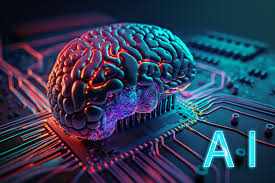Artificial intelligence (AI) has made a significant impact on many industries, and it’s becoming an integral part of our everyday lives. From smart homes to personalized healthcare, AI is making life easier, more efficient, and even more enjoyable. In this article, we’ll explore seven surprising uses of AI in daily life that you might not have considered.
AI and Personal Assistants: Your Everyday Companion
AI-powered personal assistants like Siri, Alexa, and Google Assistant have become essential tools for managing day-to-day activities. These virtual assistants leverage natural language processing (NLP) to understand voice commands, answer questions, and perform tasks ranging from setting reminders to playing music. The use of AI in personal assistants simplifies life by automating tasks and improving productivity.
For instance, AI can now handle more complex interactions, such as booking appointments, sending emails, or managing your shopping lists. With advancements in NLP, personal assistants are getting better at understanding context and even learning from previous interactions, making them more intuitive and user-friendly.
Smart Homes: How AI is Enhancing Comfort and Efficiency
AI plays a pivotal role in modern smart homes. Devices like smart thermostats, lights, and security cameras use AI to learn your preferences and habits. For example, smart thermostats adjust the temperature based on your daily routine, helping save energy without sacrificing comfort. AI is also behind the voice-activated control systems that allow you to manage various household appliances with a simple command.
Moreover, AI in smart homes extends to energy management. By analyzing data from different devices, AI can optimize energy usage, helping reduce costs and minimize environmental impact.
AI in Healthcare: Improving Diagnostics and Personalized Treatment
AI is revolutionizing healthcare by enhancing diagnostics and enabling personalized treatment plans. In medical imaging, AI algorithms can analyze scans more quickly and accurately than humans, helping doctors detect diseases like cancer at earlier stages. AI-driven diagnostic tools are particularly effective in areas such as radiology, where they can identify patterns that might be missed by the human eye.
Wearable technology, powered by AI, also plays a crucial role in healthcare. Devices like fitness trackers and smartwatches monitor vital signs, providing real-time health data to both users and healthcare providers. This data enables AI systems to predict potential health issues and offer personalized advice, improving patient outcomes.
AI in Transportation: Self-driving Cars and Beyond
Self-driving cars are perhaps the most well-known application of AI in transportation, but AI’s influence goes far beyond autonomous vehicles. AI is used in traffic management systems to optimize traffic flow, reduce congestion, and improve road safety. In autonomous cars, AI handles tasks such as navigation, obstacle detection, and decision-making, making driving safer and more efficient.
Additionally, AI-powered systems can predict maintenance needs for vehicles, ensuring that they are serviced before issues arise. This predictive maintenance helps avoid breakdowns and improves the overall reliability of transportation systems.
AI in Education: Personalized Learning Experiences
AI is transforming education by offering personalized learning experiences tailored to individual students’ needs. Adaptive learning platforms use AI to assess a student’s strengths and weaknesses and adjust the curriculum accordingly. This ensures that students receive the right level of challenge and support, making learning more efficient and enjoyable.
AI is also making strides in tutoring systems, offering personalized help outside the classroom. These systems can provide immediate feedback, guide students through problem-solving, and even help with homework assignments, enhancing the learning experience.
AI in Entertainment: Enhancing Content Recommendations and Creation
From Netflix’s recommendation algorithm to AI-generated music and art, AI is reshaping the entertainment industry. Streaming platforms use AI to curate personalized content based on your viewing habits, ensuring that you always have something new and interesting to watch or listen to. AI also helps content creators by generating ideas, suggesting edits, and even creating virtual environments for video games and movies.
In gaming, AI is used to develop more realistic and engaging characters. These AI-powered characters can learn and adapt to player behavior, providing a more dynamic and immersive experience.
AI in Finance: Revolutionizing Banking and Investments
AI is transforming the finance industry by enhancing fraud detection, automating risk management, and offering personalized financial advice. Banks use AI-powered systems to analyze transactions and detect unusual patterns, helping prevent fraud. AI is also at the core of robo-advisors, which provide personalized investment advice based on an individual’s financial goals.
In addition, AI-driven algorithms can analyze vast amounts of data to predict market trends, helping investors make more informed decisions. This level of precision and automation is reshaping how people manage their finances and investments.
FAQs
1. How is AI used in healthcare?
AI is used in healthcare for diagnostics, personalized treatment plans, and wearable health technology that monitors vital signs.
2. Can AI improve energy efficiency in smart homes?
Yes, AI analyzes data from household devices to optimize energy usage, helping save on energy costs and reduce environmental impact.
3. What role does AI play in education?
AI offers personalized learning experiences by adjusting content to meet individual student needs, enhancing both learning efficiency and engagement.
4. Are self-driving cars entirely autonomous thanks to AI?
While AI powers navigation and decision-making in self-driving cars, fully autonomous vehicles still require oversight for complex road conditions.
5. How does AI help with content recommendations on streaming platforms?
AI algorithms analyze user preferences and behavior to recommend personalized content, ensuring a continuous and engaging viewing experience.
6. What impact does AI have on financial advice and investments?
AI improves financial services through robo-advisors and algorithms that provide personalized advice and predict market trends.




